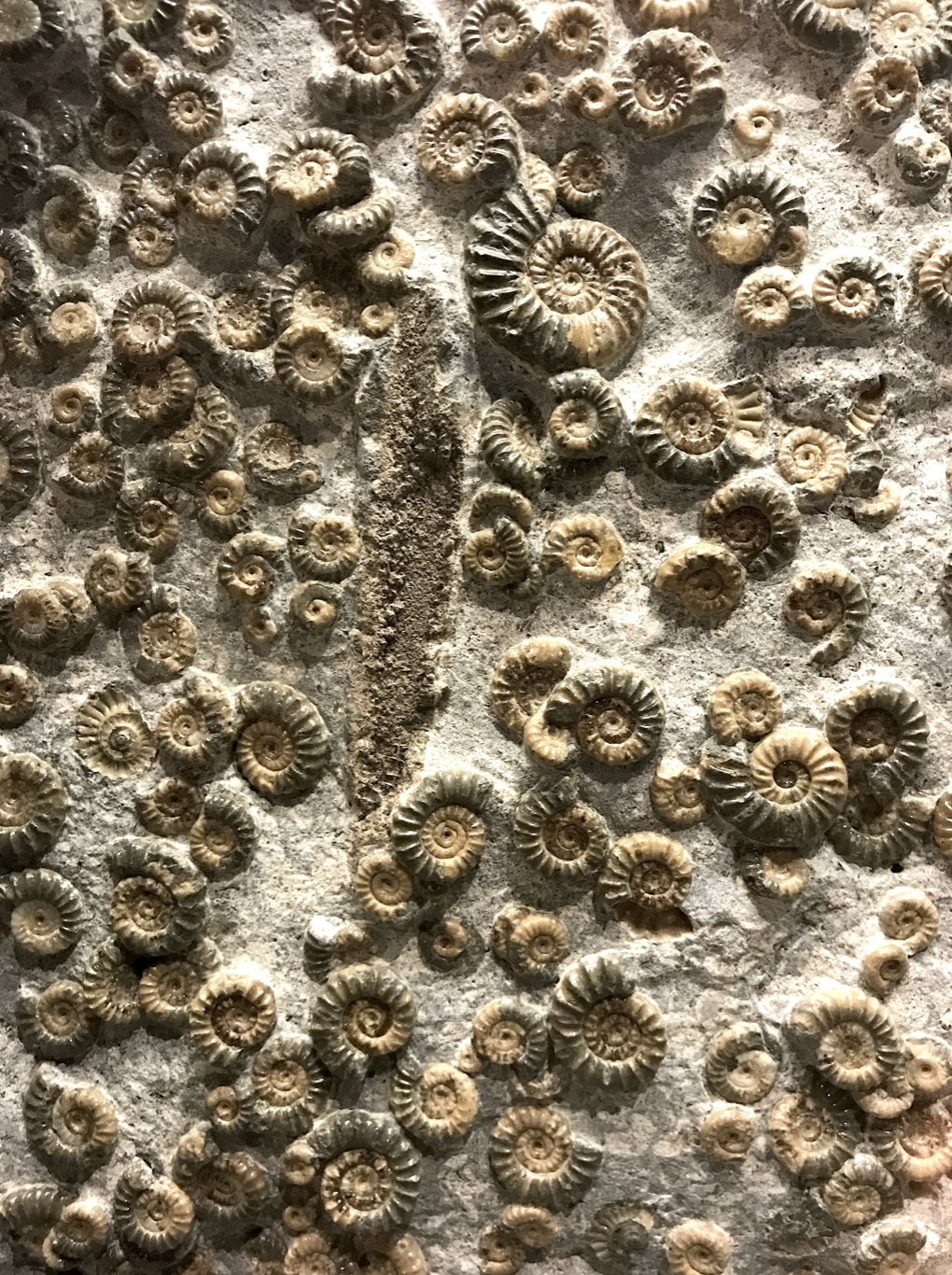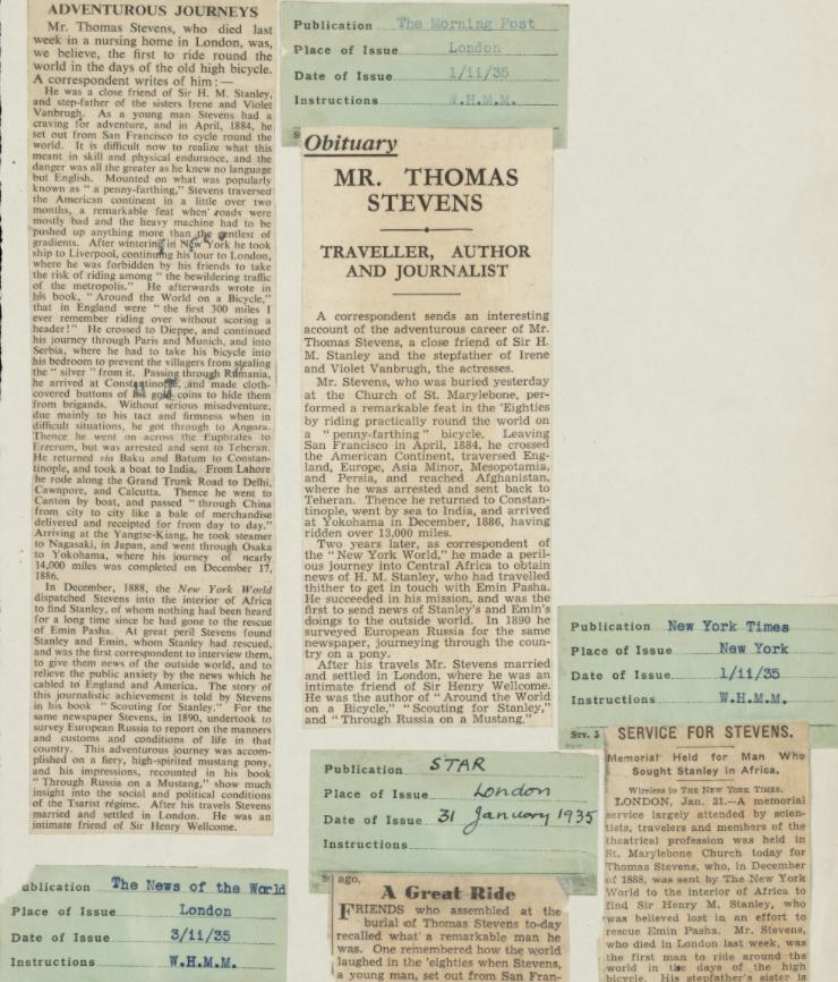“I had my foot, I remember, on the door of the bedroom because I’d decided I just simply had to write this story. I wanted to get it down. I put my foot on the door and the children were on the other side beating on the door. And I wrote the whole story with my foot on the door.” – Ruth Stone
I didn’t think I would be this kind of mother. When I was pregnant, I’d often imagine myself finding satisfaction with the daily routine – nursing my daughter, washing her diapers and clothes, caring for our home, making her food from scratch. But when all was said and done and babymoon had ended, I found that motherhood hadn’t changed me. I was still the same person I had always been.
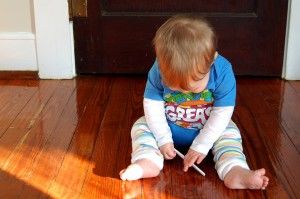
Often when I talk with my good friend from graduate school, a beautiful and smart woman who had her first child a year before I had mine, the topics invariably include writing and motherhood. She speaks about Ruth Stone’s foot on the door and affirms that that is not the kind of mother she wants to be. Though we studied poets and writers and wrote copious amounts of poetry in graduate school, my friend is not so drawn to her writing that she would push aside her child for the sake of her art.
Not like Ruth Stone, who described the act of writing a poem to be a physical rush coming through her that would write itself as long as she could get her hands on a pencil and some paper. Stone had to write; it was in her bones. In an interview with Sandra Gilbert, she is quite nonchalant about the “funniest time” when she wrote an entire story with her foot on the door. No remorse. No lamenting. No regret. The writing was having its way with her and the children would have to wait.

I suppose to most Stone appears to be a negligent mother. How could she put anything before her children? Isn’t a mother’s first duty to her kids, especially before silly things like writing poems? How could she ignore them like that? These are interesting questions and important ones. They cut into the fabric of our cultural conception of mothers and force us to examine how we define motherhood.
In our culture the general consensus continues to be that moms do everything they can for their kids – taxi them to a wealth of activities, make them nutritious meals, keep them entertained with creative and intellectually stimulating projects, throw the most awesomely spectacular birthday parties – as well as keep a tidy, perfectly decorated house and ensure their husbands are happy. Though we know this is a ridiculously tall order, all that pressure continues to exist.

Then we have Ruth Stone, unapologetically dedicated to her writing. My guess is that Stone’s attitude about motherhood is that it was only one facet of who she is. She is not only a mother, but also a writer, a poet, a teacher, and a myriad of various roles.
Some mothers are willing to throw themselves headlong into motherhood, finding their ultimate happiness in all things mommy. Others aren’t. With the increasing convexity of my pregnant belly came the idea that I might be willing to set everything aside for the sake of motherhood. And in adjusting to the addition of Lily to our family, to the feedings and the wakings and endless hours bouncing her in her bouncy seat, I did just that. The transition from two to three is not an easy one. But once my husband and I figured the whole baby thing out, I realized that being a mother isn’t all that I am now — it’s only a piece. It’s an important piece, mind you, but only one piece.
When Lily was three months old, I returned to the workforce part time to teach at a local college. I thought I was ready to do more than stay at home caring for a baby, but I wasn’t. The subsequent months were dark. I worked at taking care of Lily and grading the unending stack of papers every day. I stopped sleeping. I stopped caring about my students, and I became very resentful.
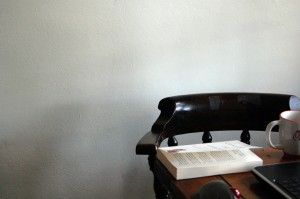
Just as I was deciding whether to teach the following semester – hoping that things might get better – I happened upon an article titled “Motherhood as Vocation” that changed everything for me. The author discusses the difficulty in being a stay-at-home mom in a work-dominated culture, especially for women who are educated and have found meaningful work outside of the home before becoming mothers.The article affirms that the work of a stay-at-home mom is of utmost importance, just as important as being a doctor or a lawyer or a novelist. It is work that is shaped by the mother’s experiences and education, and is by no means inferior to other types of work. With that confirmation, I decided to step back from teaching and stay home. I would be that kind of mother.
But being a mother hasn’t changed who I am. It’s changed how I spend my time and how I see the world, but it hasn’t restructured the DNA of my personality and it hasn’t changed who I have always been. In the past month, I have felt passionately that I need to return to my writing.
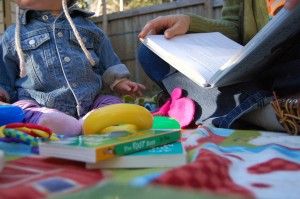
Once upon a time, I wrote a lot, mostly poetry. Since graduate school, though, I haven’t written much purely for the sake of writing. My writing has been for employment but not for my joy or my sanity. So I’ve decided to start writing again, every day, simply to get words on the page and free up the clutter that rattles around in my head.
This is not to the detriment of my daughter. And I don’t think Ruth Stone’s foot on the door was to the detriment of her children either. Though I am a mother, my child simply cannot monopolize my entire life. I’m not hardwired for that. I’m much too introverted and need time alone to think and process what’s going on in my life. Part of that is working on my art, whether it’s taking photographs or writing poems or working on any of the crafting whims to which I’m subject. Perhaps I’m not meant to teach or work outside of my home, but I believe wholeheartedly that my work on this earth includes being both a mother and an artist. These things make me whole. They make me a better person and they make me a better mother.
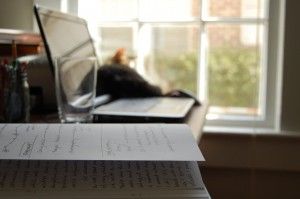
I want to be this kind of mother: one who is fulfilling her calling. I want to be the kind of mother whose love for her child is fierce and unquestionable. I want to be the kind of mother whose child knows that nothing on earth is more important to me than her. But what I want more than anything is for my daughter to learn that when I close the door to do something that takes me away from her, it’s not because I’m negligent or that my art is more important than she is. It’s because this is the kind of woman I am.
Read Sandra Gilbert’s interview with poet Ruth Stone here (beginning on page 52).


